What you need to know about preventing flies...naturally.
We’re well into the spring months; the weather is warming, the trees are green, the grass is growing and the flowers are blooming. It’s a wonderful time of year but, with all the beauty comes one annoying fact…it’s also FLY SEASON!
From common house and barn flies, to giant, biting horse flies, to that particularly sticky breed of horn fly, they’re seemingly everywhere this time of year. Every year, companies come out the newest technology, the latest and greatest thing in fly prevention and, if you’re like us, you’ve spent a small fortune trying to find something that actually works for more than 20 minutes.
While there are a few products you’ve no doubt deemed worthy(ish), they usually come coupled with hefty doses of insecticides, pyrethrins and other potentially harmful ingredients. With the growing popularity of homeopathic and herbal remedies, it is only natural that there would also be a growth in the number of natural fly repellents available. But, do they actually work?
- GARLIC:
There are a plethora of garlic supplements out there and tons of literature that supports its use both as an antibiotic and pest repellent. If you’ve spent any time in a large barn or boarding facility, you’ve no doubt noticed that some horses are covered in flies while others have but a few. Maybe you’re thinking to yourself, “Man, I need to find out what they’re using for fly control and buy it!” but what if the horse that’s covered in flies actually has a compromised immune system? That’s the theory many renowned herbalists hold dear and they rely on garlic’s multi-dimensional properties to boost the immune system while also addressing the outward pest problem.
As with any changes to your horse’s feeding regimen, when choosing a garlic supplement it is important to research the product your considering thoroughly. Garlic contains a product called N-propyl disulfide that can toxic to horses in high doses, making it vitally important to investigate the processing methods and dose concentrations before purchasing. Most reputable companies are well aware of this potential danger and take steps to ensure their products remain safe and effective for their consumers.
- CITRONELLA OIL:
If you Google “Citronella and Horses” you will be immediately presented with an unlimited supply of DIY fly spray recipes for your horse. Clearly, you’re not the first person with this notion. Citronella has been a well known and well utilized essential oil that has been registered in United States as an insect repellent since the mid-1900s. It is widely used in pest repellent products for both humans and animals and has been proven effective in many studies.
Many equine companies have capitalized on the popularity of citronella oil over the years as it’s extremely safe, effective and has virtually no side effects . Again, it’s important to know who you’re purchasing from. As with any product that grows in popularity, there are now many derivatives and processed alternatives out there masked as “natural” citronella.
- NEEM OIL:
Lesser known in the equine world, neem oil has been widely used as an insecticide, pesticide, and parasiticide across the world for centuries. While it can be toxic if consumed in large quantity, neem oil is safely used in natural fly spray formulations and is quite effective.
- LEMONGRASS OIL:
As citronella’s less famous cousin, lemongrass oil contains many of the same qualities and is actually the origin from which citronella is made. An effective, natural pesticide, this non-toxic ingredient has been used for centuries in Asian cuisine, teas and natural anti-fungal treatments.
- CEDARWOOD OIL:
Cedarwood oil possesses many uses in modern society with its insecticidal properties being among the lesser known. Think back to your grandma’s attic closet. It was cedar lined, right? That’s because cedar is well documented to keep pesky bugs out. Much the same, cedarwood oil is used in fly sprays to repel flies and other insects that would bug (pardon the pun) your horse. It’s incredibly safe and even approved by the FDA as a food preservative. That said, more is not always better…a little goes a long way with this ingredient.
As referenced above, where ideas gain popularity there will inherently be imposters. Less than reputable companies exist everywhere and, generally, a cheaper price tag is a good red flag. Essential oils and quality garlic products are not cheap to produce and, as always, you should fully evaluate who, and what, you’re purchasing. Veterinarians and respected herbalists are great resources – use them!
With animal supplement companies, check to make sure they are approved by the National Animal Supplement Council (NASC) before purchasing. This is a good starting point and the NASC provides a complete list of their approved companies on their website.
Herbal supplements and topical applications can definitely be a good tool for fly season and an excellent alternative to harsh, chemical based products. A little knowledge and research goes a long way in finding the right product for both you and your horse!

